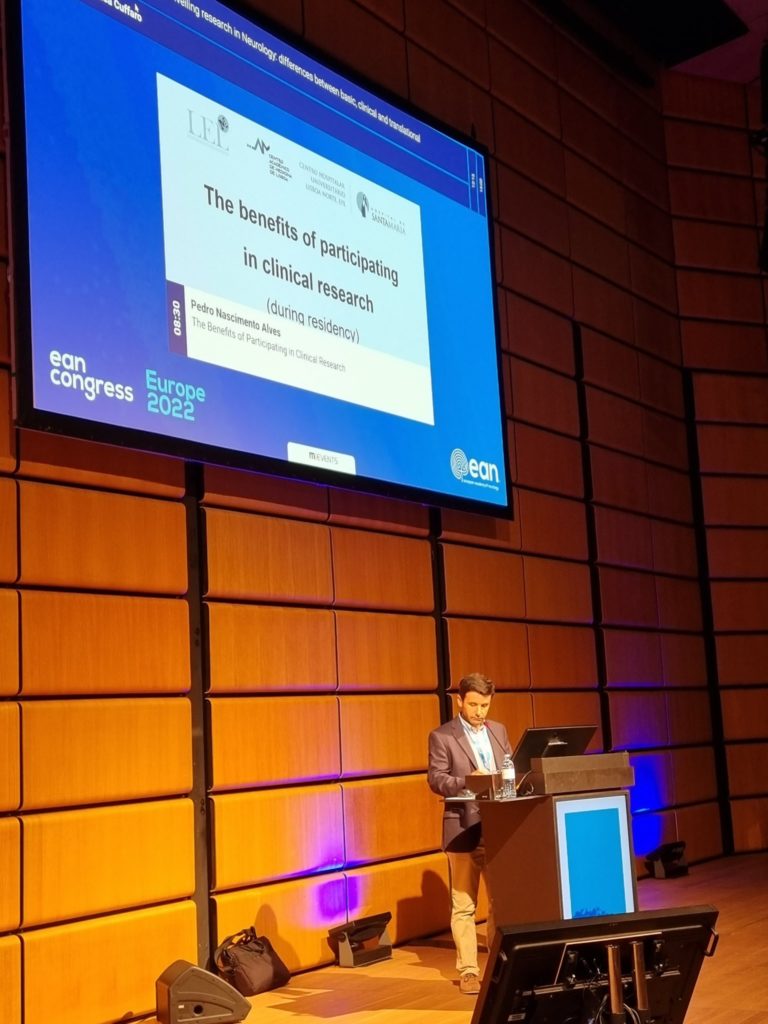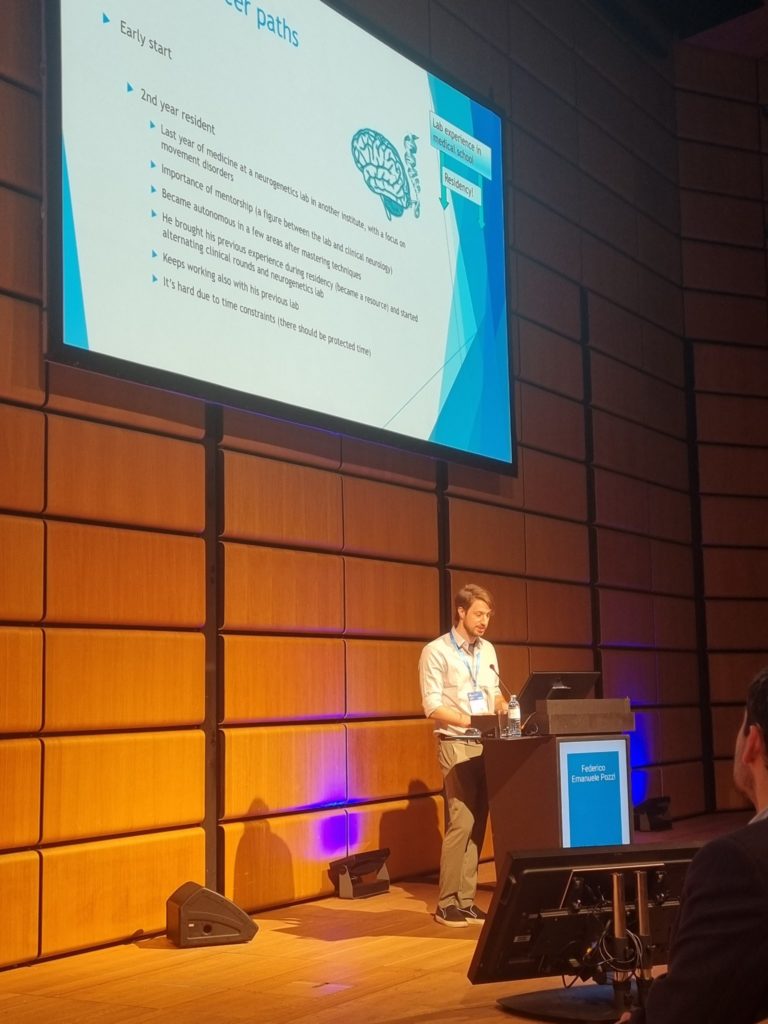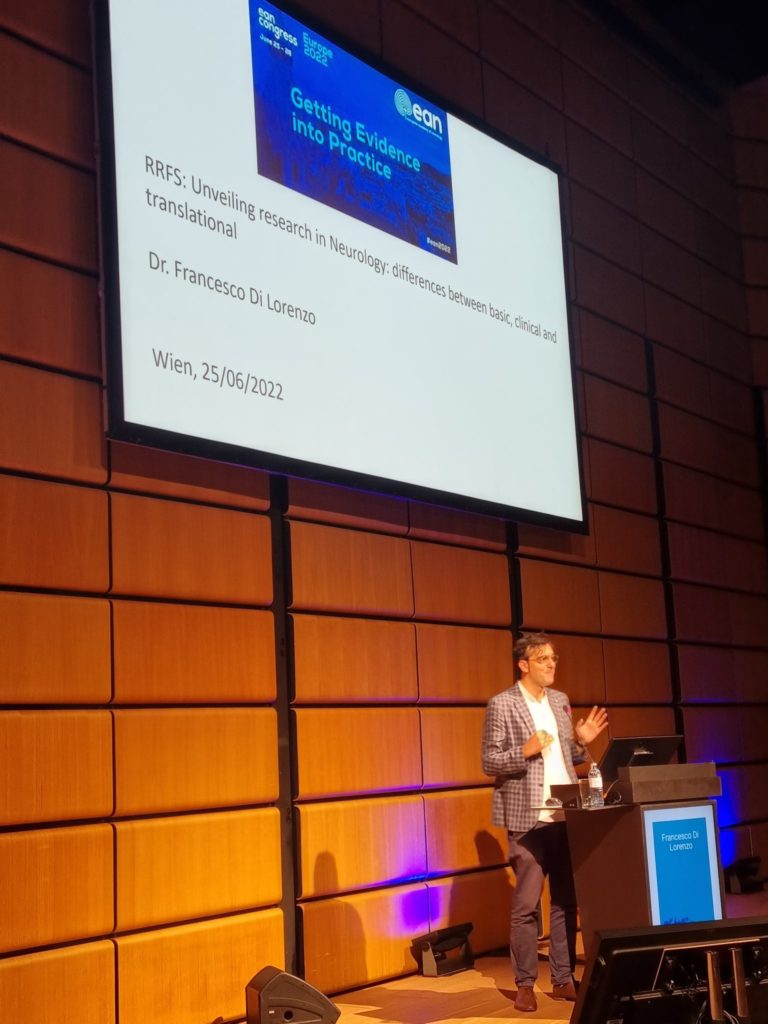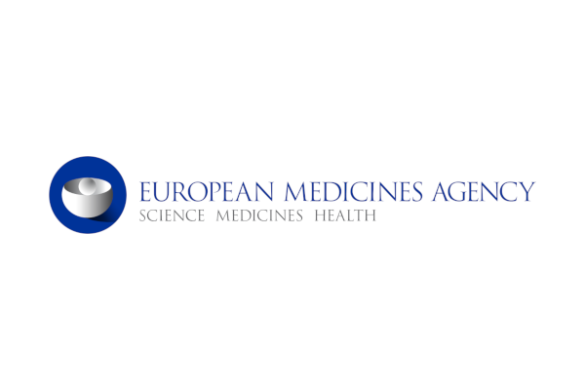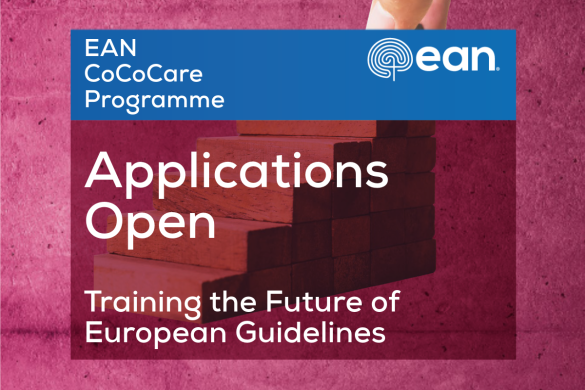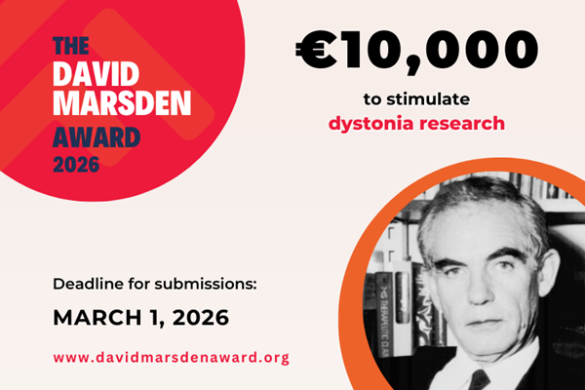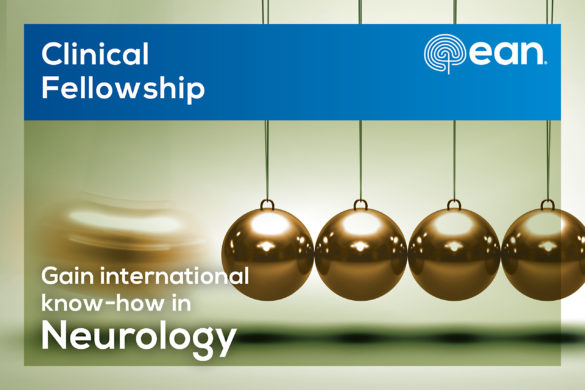by Federico Emanuele Pozzi
The RRFS Special Session on Unveiling research in Neurology was among the first events at EAN 2022, and its primary focus was providing both residents and students with examples and suggestions about different aspects of research in neurology.
The first talk, Benefits of Participating in Clinical Research, was held by Dr. Pedro Nascimento Alves, who started the presentation with some personal examples of his own work in the field of neuroimaging, some of which he is going to present later during the congress. He then proceeded to show how unexpected problems may be turned into opportunities to become better researchers, and mentioned the fact that many ground-breaking discoveries were made by young scientists and neurologist, from Wernicke and Ramon y Cajal, to the enormous number of residents involved in important clinical trials, such as the ones on thrombectomy for stroke, Natalizumab for MS and Nusinersen for SMA. He then underlined the importance of participation in clinical trials in order to achieve a better understanding of the evidence, develop critical thinking and improve knowledge, providing examples of how he acquired computational and programming skills in his field. Finally, he illustrated the importance of finding a good mentor who is actually willing to teach, addressed the issue of whether one should suspend clinical practice to focus on research, and concluded that curiosity and persistence are the most important allies in clinical research.
The second talk, Science for Future: All Starts with Basic Research, was given by me, Dr. Federico Emanuele Pozzi. The presentation began with an outline of the pros and cons of doing basic research as an intern, showing that even though one would greatly benefit from being a figure in between clinical practice and the lab, basic research could also be time consuming and highly context-dependent. The talk also hinted at the opportunities that having a background in basic science may offer career-wise. I then provided examples of different research career paths, showing several possible trajectories including my own and the ones of a few of my colleagues, concluding that starting early, finding a mentor and focusing on specific projects are probably the most effective ways of doing basic research as an intern. I stressed the importance of personal motivation, and the possibility to find contacts for experiences abroad through EAN events (such as the EAN Science School) and social media. Finally, my talk addressed the question of what may be required by a resident in the lab, and concluded with some aspects of basic research in the dementia field.
The last talk, Beyond Bench and Bedside: Disentangling the Concept of Translational Research, was given by Dr. Francesco Di Lorenzo, who started by detailing his own experience and highlighting the importance of ‘reward’, in addition to curiosity, persistence and motivation, showing that the research world is also about traveling and networking opportunities. He then provided some examples of his own translational work on transcranial magnetic stimulation in Alzheimer’s disease, showing how it started from basic lab models and engineering techniques and progressed towards clinical applications. He then outlined another example of his own brilliant translational research, illustrating the trajectory of a project on the dopaminergic system in Alzheimer’s disease, which began with neuropathology models and is now turning into a huge national grant-funded international clinical trial. This last example gave him the occasion to talk about funding opportunities, and he concluded by listing a few possibilities provided by the EAN itself, the European Research Council and other governmental bodies and private foundations.

